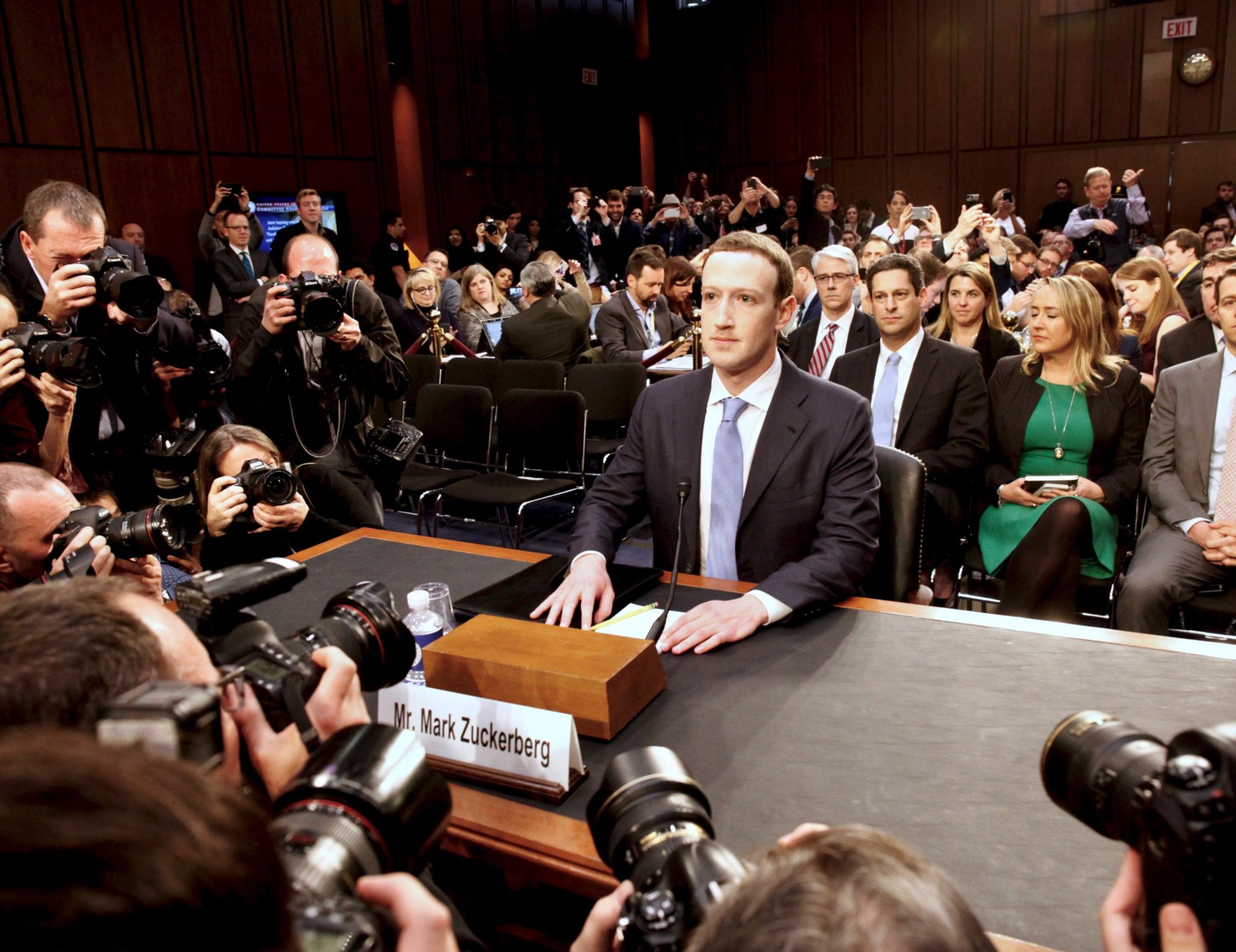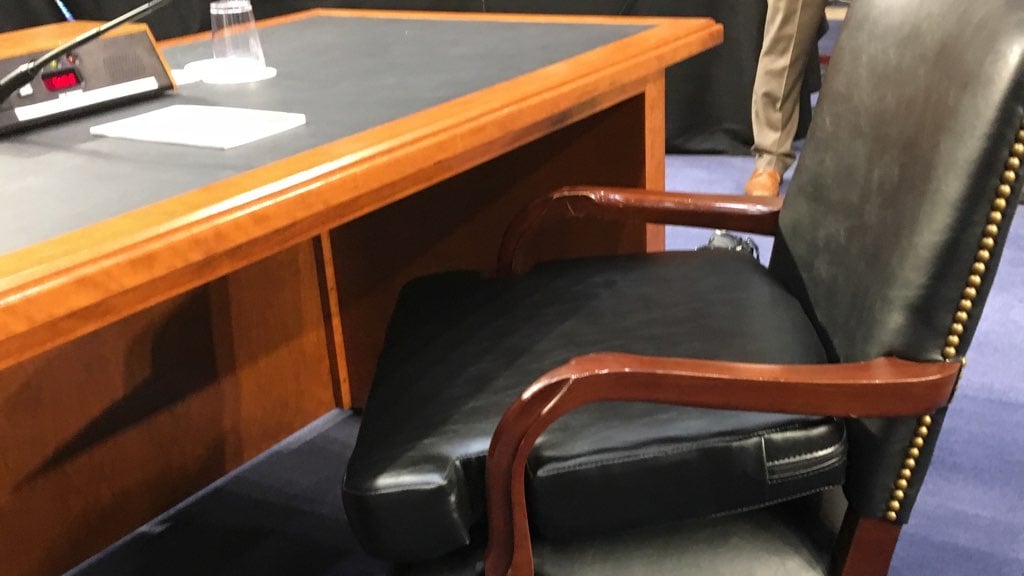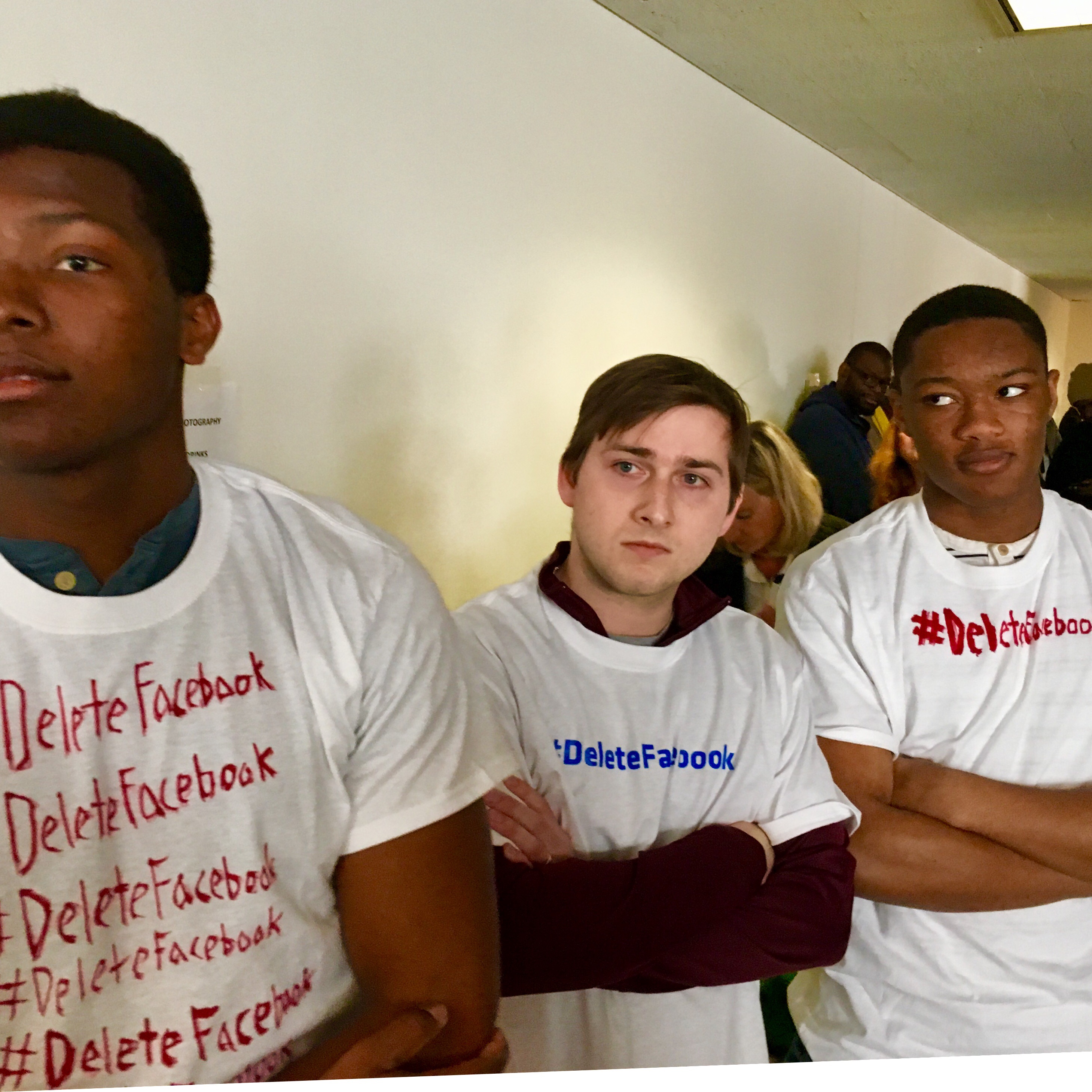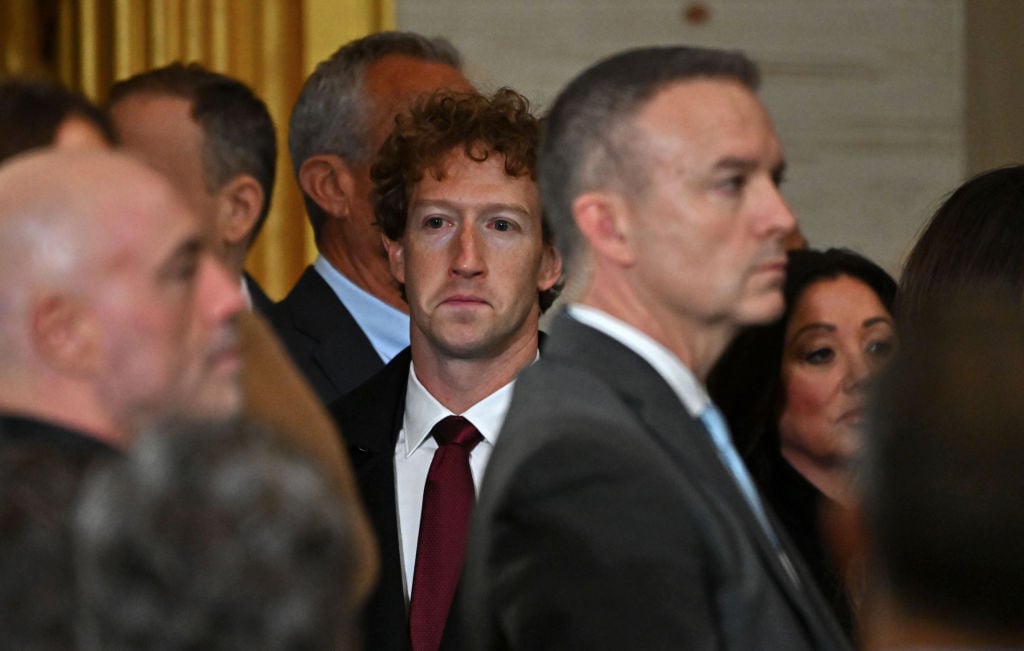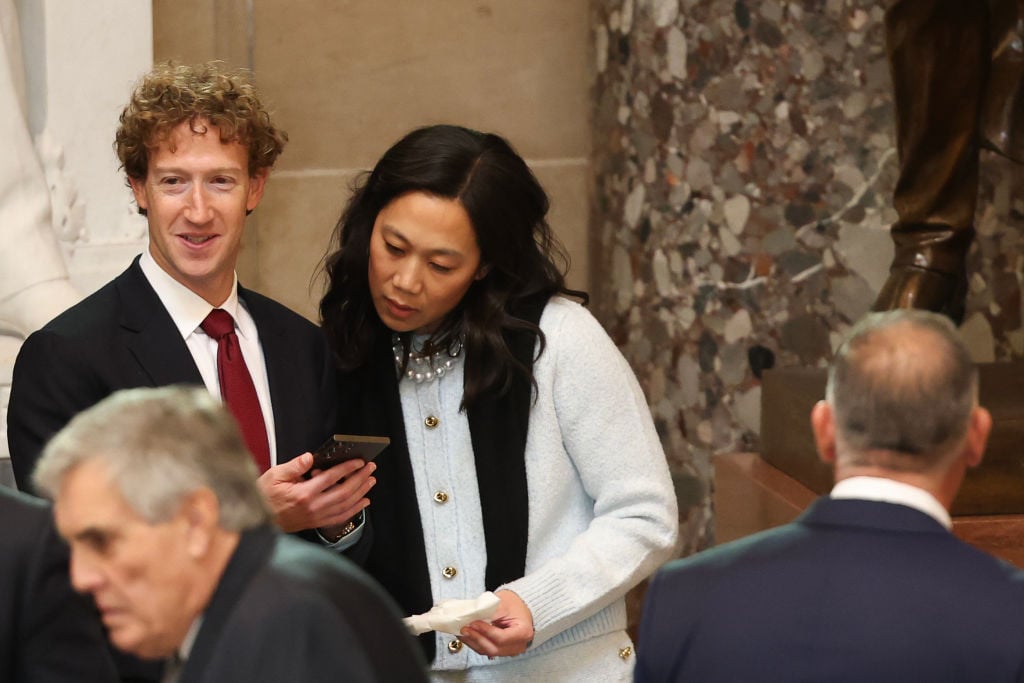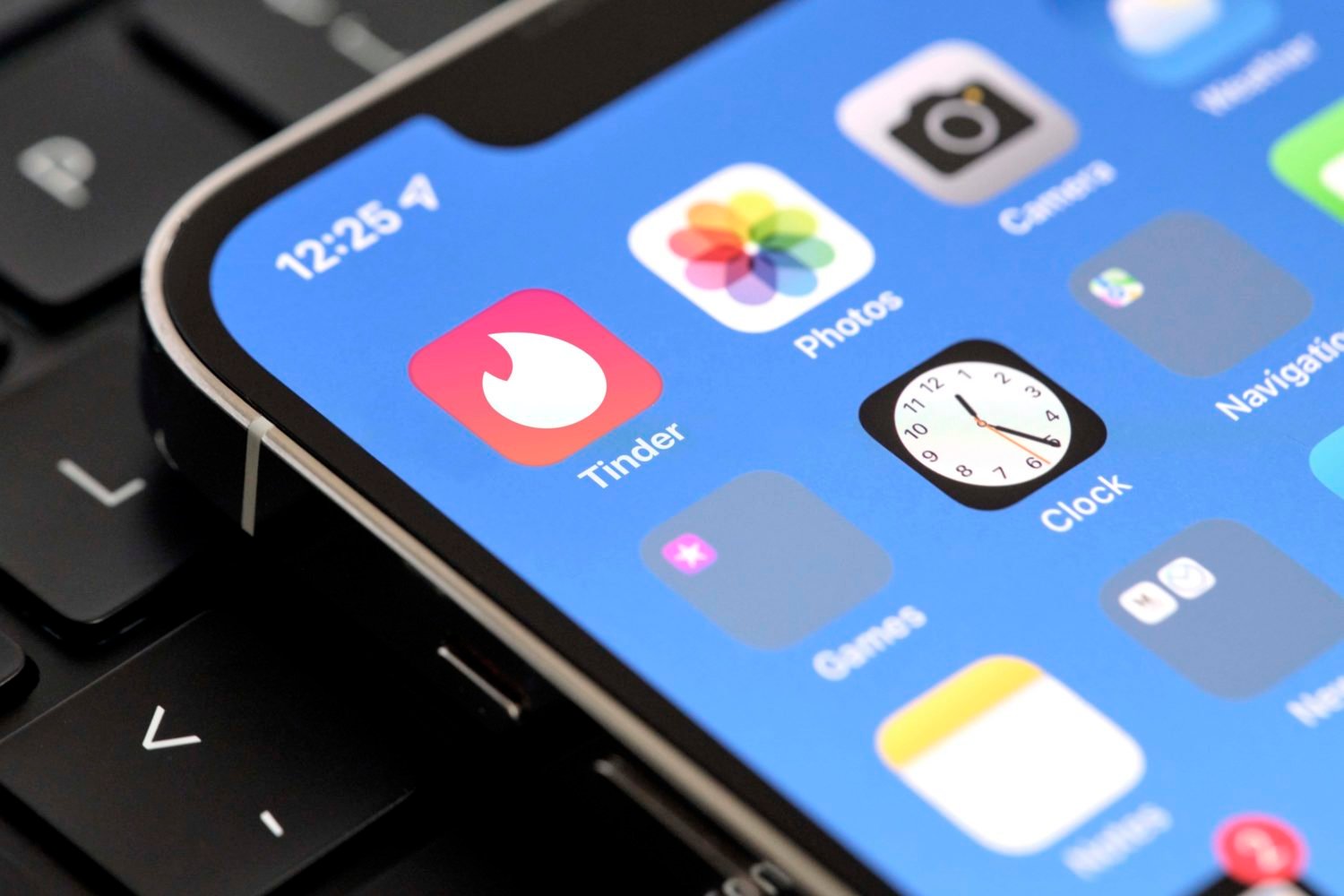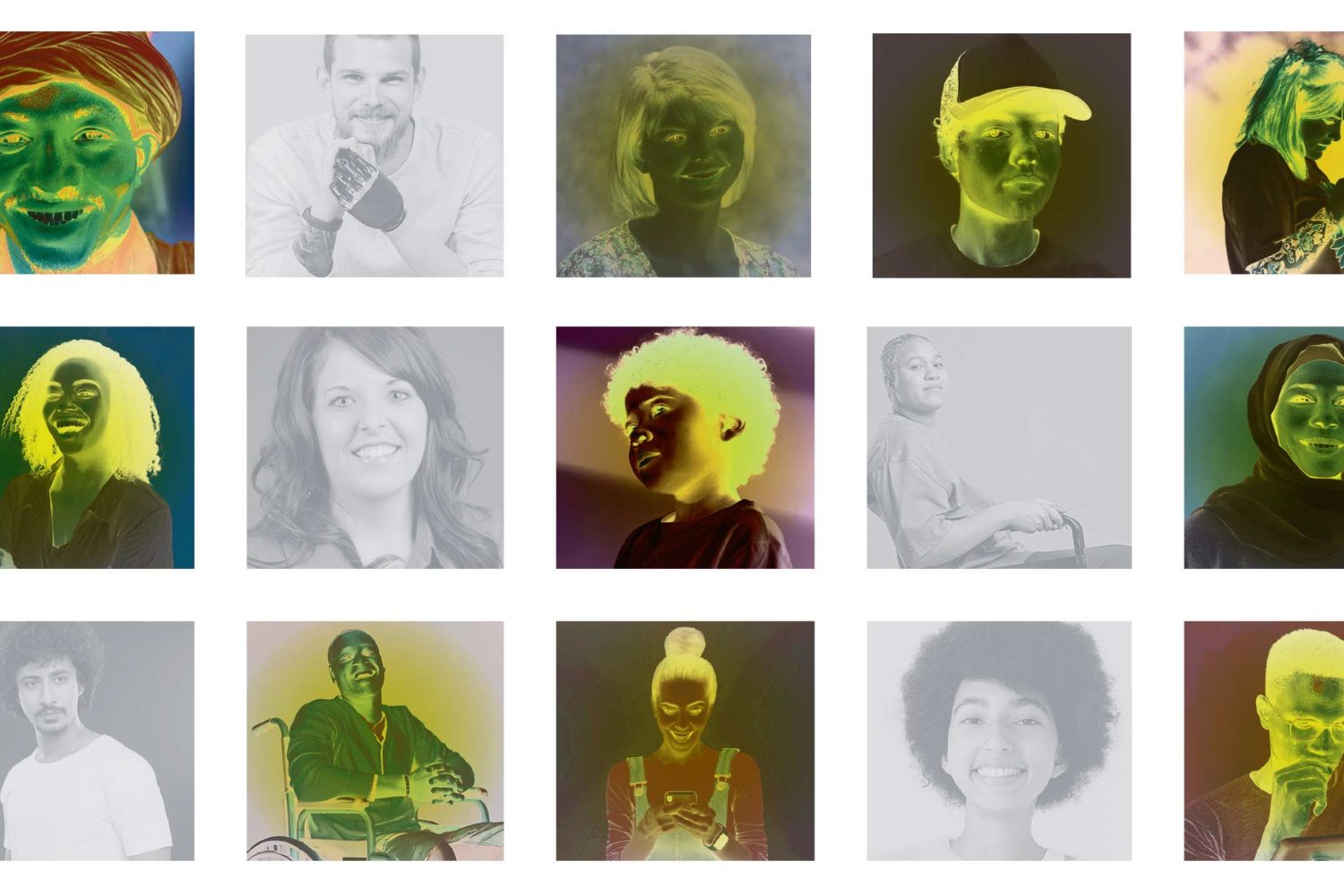The line for a seat in the first-come, first-serve public galley started at 7:15 AM. By 10:30 AM, cable news pundits had already begun teasing out the day’s possibilities: what Mark Zuckerberg would wear to his first ever Senate hearing (a suit), how he might sound (contrite, humble), and what he’d talk about (his children, to humanize him). By noon, a black leather chair with nailhead trim, centered behind a desk and mic, had been outfitted with a seating pad, presumably for the Facebook CEO’s comfort.
The public audience sitting at the back of the joint hearing of the Senate Judiciary and Commerce Committees on Tuesday afternoon was dotted with #DeleteFacebook T-shirts and novelty, oversized glasses with “Stop Spying” written across the lenses. There was a person in a troll wig and a “Russia” scarf, presumably because there are Russian trolls on Facebook. Between that audience and Zuckerberg sat seven long tables of reporters feverishly typing out live updates and skittishly looking around—perhaps worried about what everyone else was typing. After a few hours, the discrete eating of granola bars became more prevalent in the back half of the room. Around hour four, one reporter sitting at my table began caressing a pair of orange earplugs.
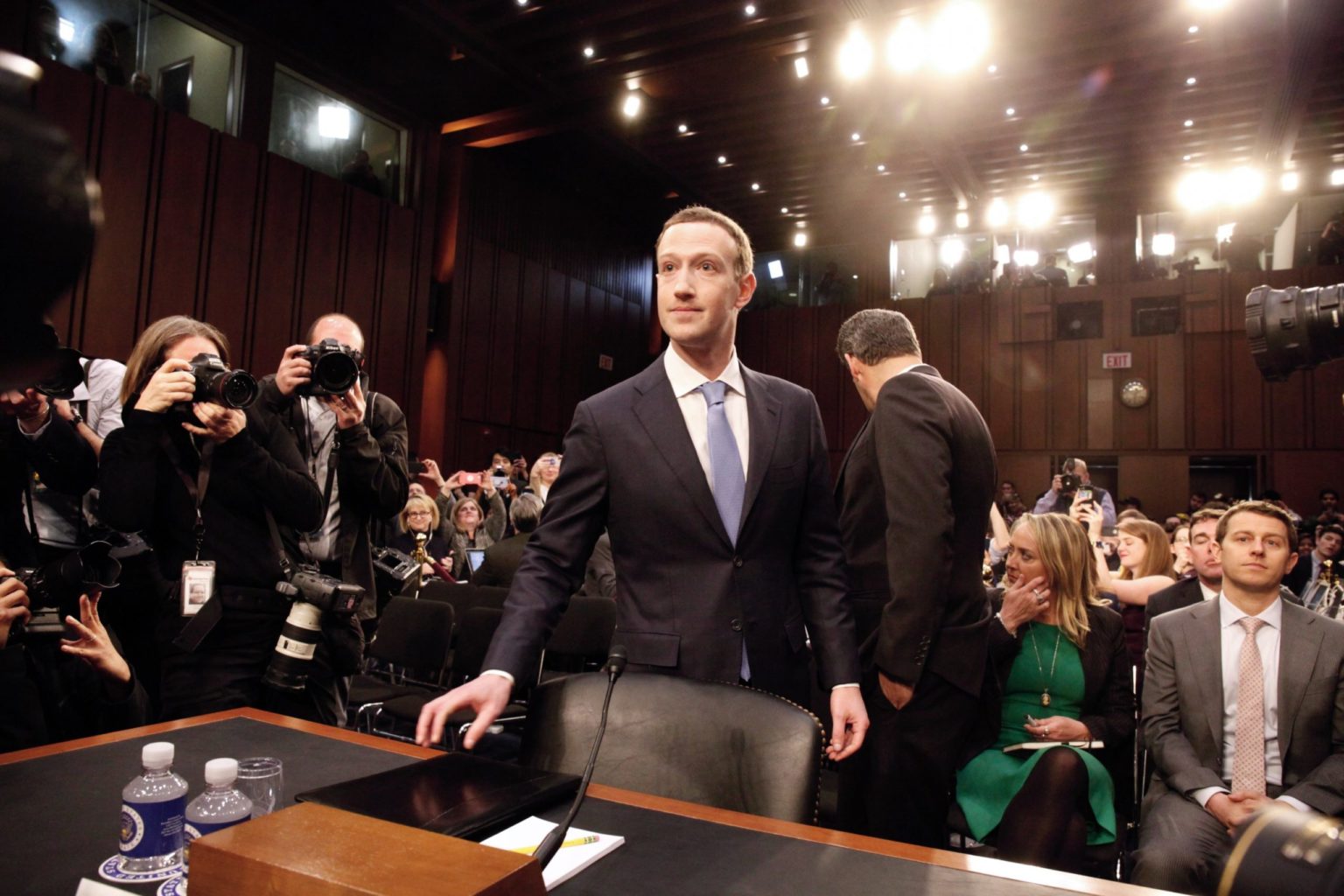
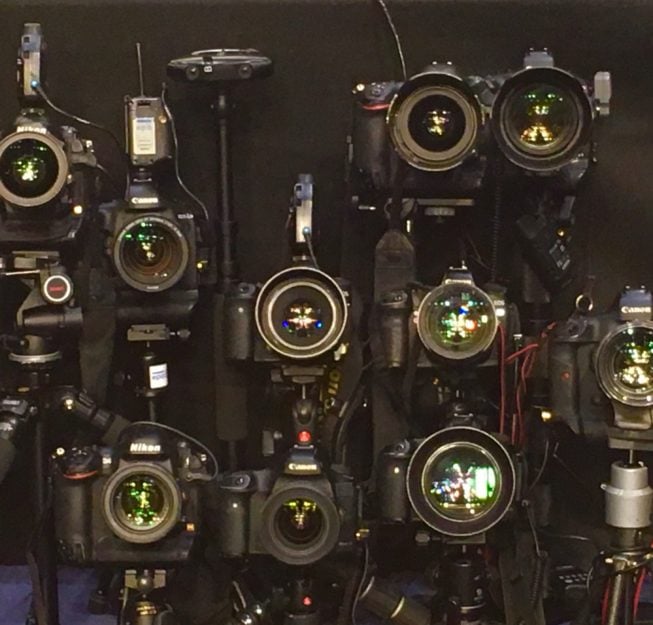
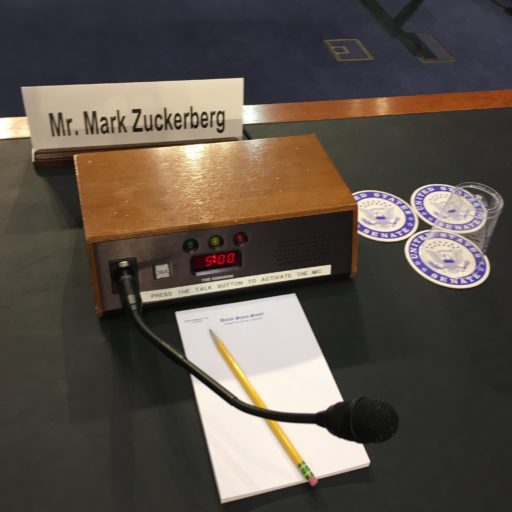
If the hearing room is a football field, Mark Zuckerberg sat roughly on the fifty-yard line for five hours of questioning. His arrival a few minutes before 2:30 was greeted by a wall of photographers, the teeming of hundreds of simultaneous shutter clicks, loud as cicadas. When the photographers were called to clear the well, the 40-plus members of the committees were revealed to be already sitting on the dais, waiting.
If Zuckerberg had come into the hearing raring to go, committee leadership wasn’t going to give him the chance. Zuckerberg dutifully nodded along to twenty minutes of opening statements by Senators Chuck Grassley, John Thule, and Dianne Feinstein, each taking a turn to enumerate Facebook’s trading card stats (2 billion users!) and unpunished sins (destroying privacy, essentially).
Zuckerberg has a boyishly oval face (hardly a chin in sight), but most visual traces of the cocksure undergrad who came barrelling into Silicon Valley in jeans and a hoodie, his curly hair perpetually matted, were absent today. His hair is short-cropped and receding. He wore a Facebook-blue tie. There’s been what seems a concerted campaign to lower expectations about Zuckerberg’s public-speaking abilities, but he delivered his pages-long opening statement mostly from memory.
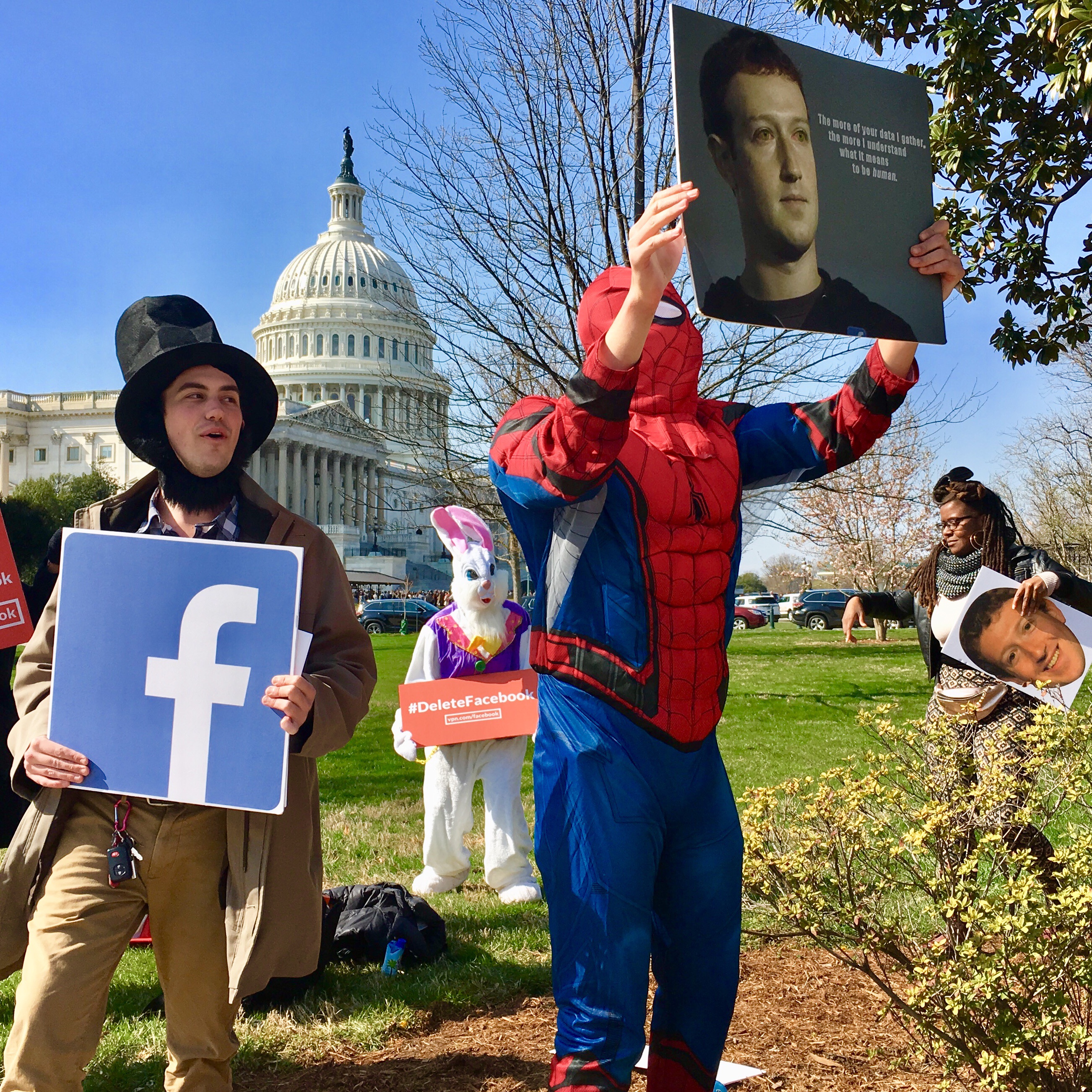
Conversation meandered into the late afternoon. The senators’ questions pinballed from the Cambridge Analytica scandal to fake news, from Russian meddling to Facebook’s inability to identify hateful messages and violent messages fast enough. Senator Ted Cruz used his five minutes to grill the 33-year-old CEO on what he called a “pervasive pattern of political censorship” on the site. Senator Richard Blumenthal—who earlier in the day renamed Zuckerberg’s so-called “apology tour” the more dramatic-sounding “contrition sonata”—tasked staffers with holding up charmingly homemade posters of Zuckerberg’s previous apologies over the years. The overall impression is that each senator has his or her own one-of-a-kind constellation of complaints with the social media company, as varied as snowflakes.
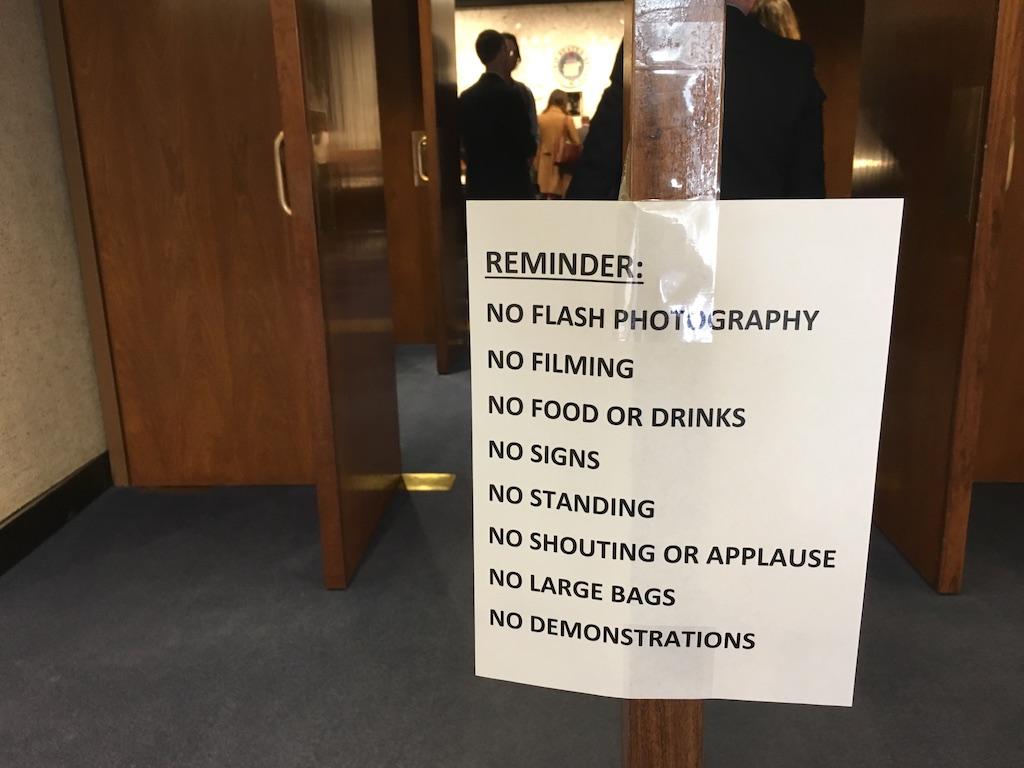
Zuckerberg also seemed to spend an inordinate amount of time explaining basic functions of Facebook and saying the word “Senator.” For example, he explained that Facebook can’t see your WhatsApp messages and that it doesn’t sell users’ data. How do you make money? “Senator, we run ads.” Too much time was spent discussing the contracts of adhesion otherwise known as “user agreements” as if they weren’t simply forgettable clicks between a user and the thing a user wants to use. Zuckerberg was permitted to waste significant time recounting the plot of the Social Network to a shrinking audience, as senators who’d gotten their at-bats left the hearing.
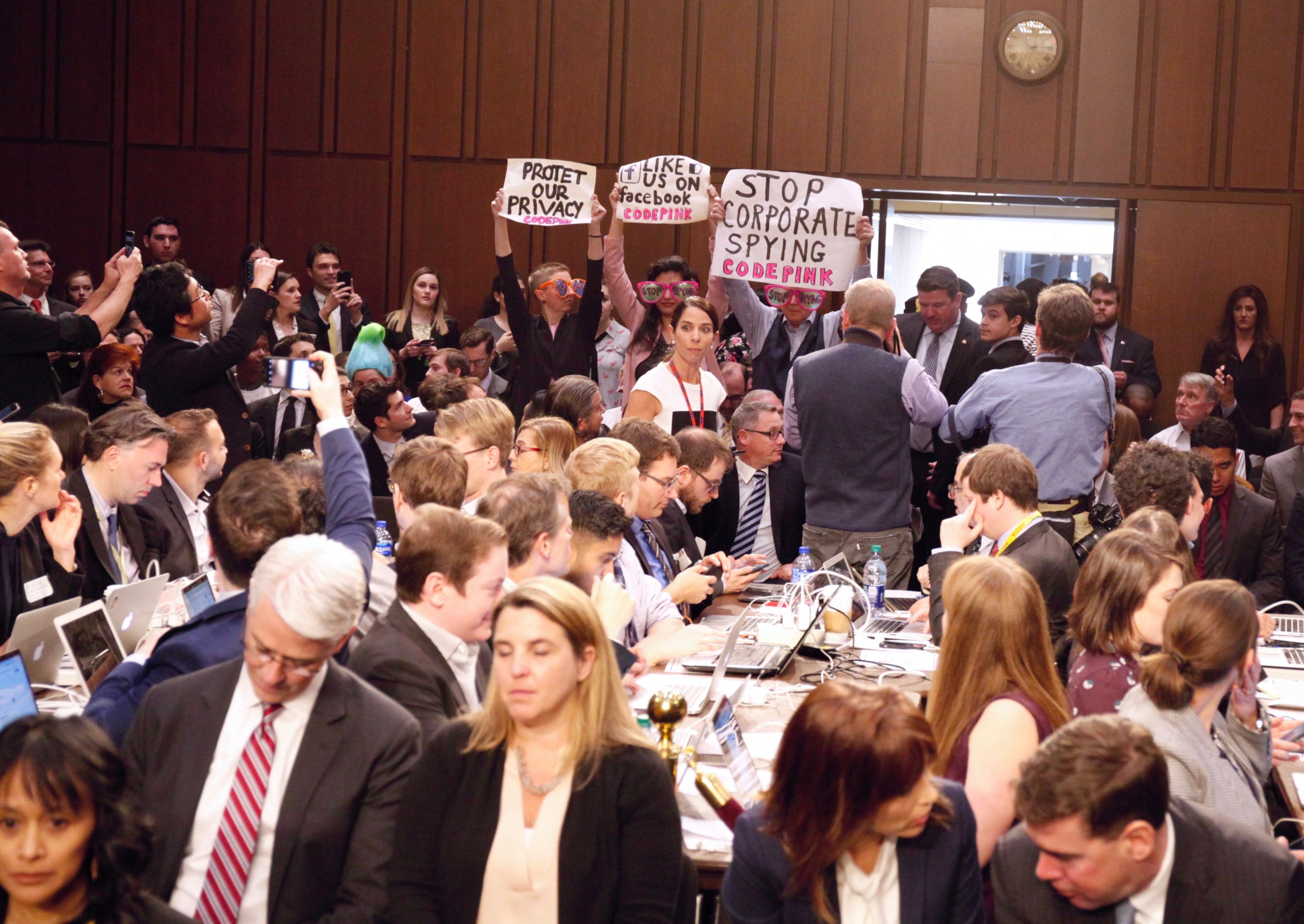
Generally, though, the impression was that Zuckerberg did well, even getting an occasional laugh. He punted a lot (promising a bajillion follow-ups from “my team”), but rarely stepped in it (a notable exception: refusing to agree that the story of Facebook’s stratospheric success could happen “only in America”).
And at moments, the 22-year-old poster boy for moving fast and breaking things didn’t seem like a figure from the past. When Senator Thune decided on a break after about two hours of questioning, Zuckerberg suggested they go for a further 15 minutes. After a particularly combative questioning from Cruz, Zuckerberg cracked: “That was pretty good.”

